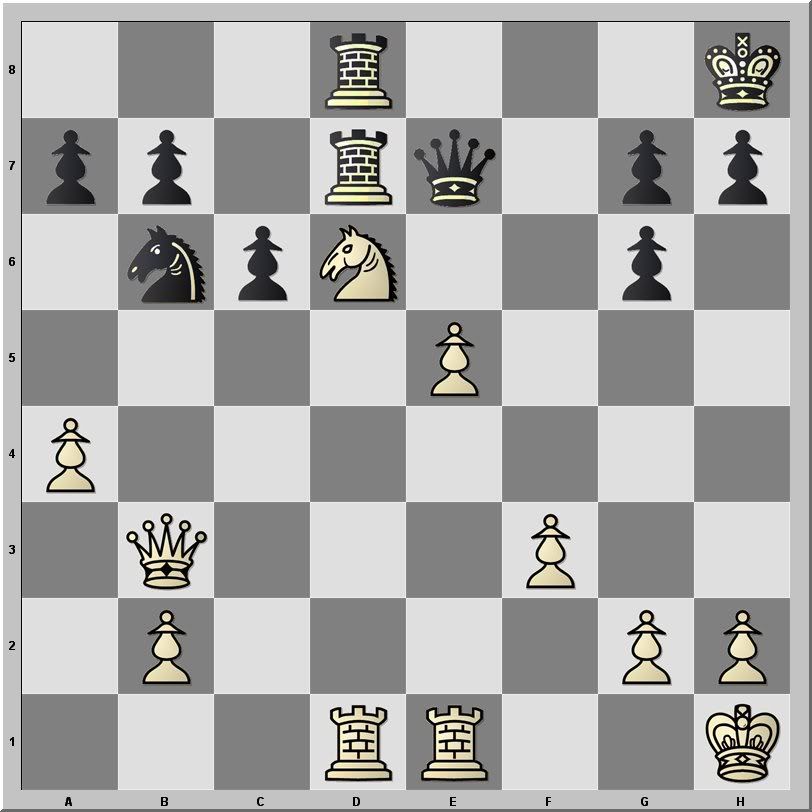
I wanted to play 30.Nf7+, but believed that my opponent could exploit a back rank weakness. I played 30.Kg1? My opponent's feeble 30...Nc8 almost forced me to play the correct move. Move 30 was the right moment, but it returned because of inadequate defense.
In chess, there is good enough and there is correct. Moves that are good enough work against weak opposition, correct moves always work. 30.Nf7! would have been correct. 30.Kg1 was good enough today, but will fail tomorrow.












30. Nf7+ Qxf7 31. Qxf7 Txf7 3. Txd8+ Tf8 4. Txf8 mate.
ReplyDelete30. Nf7+ Kg8 31. Nxd8+ is the only variation i see that gives advantage for white if black doesn't take on f7.
It's a matter of calculation and visualization i guess.
The first chapter of the book Forcing Chess Moves is focused on back rank themes like this. In fact this position could almost be in the book. It's a pretty instructive example, especially with the psychology behind it.
ReplyDeleteChessTiger By Txf7 I suppose you mean Rxf7.
Yes, T(oren) is dutch for R(ook)
ReplyDeleteLet's see if I understand correctly - is this the critical varation, below?
ReplyDelete30. Nf7+ Qxf7
31.Qxf7 Rxd1 (threatening 32...Rxe1#)
32.Rg1! (better than 32.Qf8 Rxf8 33.Rxd1 - where White has gone down a knight)
I know I got nervous after visualizing 31...Rxd1, and it took me a couple minutes to see the saving move 32.Rg1.
-- Hank
That's right Hank, 32.Rg1 is the key move that I missed in the combination. I looked at, considered, and even wanted to play the correct move (30.Nf7+), but did not because I failed to find Rg1. When my opponent blundered with 30...Nc8, the opportunity for the combination was renewed with even more devastating consequences.
ReplyDeleteIt is easy to look at the victory, and the combination beginning with 31.Nf7+, and to pat myself on the back. But, I aim to win against the sort of opposition that will not leave these opportunities on the board for a second move. Although I won the game, it contains the sort of lesson--missed opportunity--often found in defeat.
Chess Student, T is also Torre, Italian for rook.